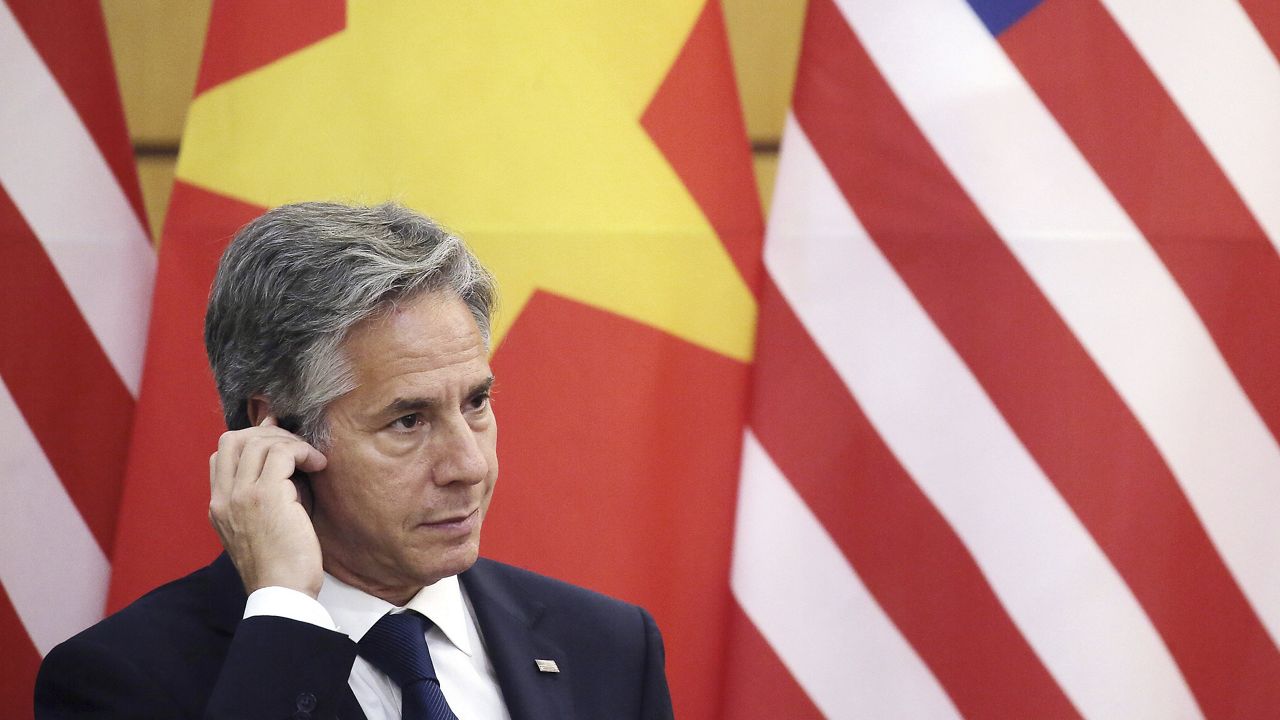U.S. officials over the weekend stressed the importance of Elon Musk’s internet service Starlink remaining widely available in Ukraine amid Russia’s invasion, while declining to comment on a specific instance in which the billionaire businessman said he denied a request to activate it during a Ukrainian attack on Russia last year.
“I can’t speak to a specific episode. Here’s what I can tell you: Starlink has been a vital tool for the Ukrainians to be able to communicate with each other,” Secretary of State Antony Blinken said in an interview with CNN on Sunday.
White House Deputy National Security Advisor Jon Finer similarly pointed to the significance of the service during a briefing with reporters on the way to Vietnam with President Joe Biden over the weekend.
“We think access to Starlink has played an important role for the Ukrainians in the course of this conflict,” he said. “We think they should continue to have that access.”
The recently-renewed focus on the use of SpaceX’s Starlink in Ukraine follows Musk’s post on X, the platform formerly known as Twitter, last week. In the post, Musk said he received a request from authorities in Ukraine last year to activate Starlink in Crimea's port city of Sevastopol, with the “obvious intent being to sink most of the Russian fleet at anchor.”
“If I had agreed to their request, then SpaceX would be explicitly complicit in a major act of war and conflict escalation,” Musk wrote.
The businessman’s comment came after CNN published an excerpt from author and journalist Walter Isaacson’s upcoming biography on Musk detailing the apparent situation. According to the book, Ukrainian submarine drones with explosives lost connectivity and washed ashore “harmlessly” when they approached the Russian fleet.
CNN reported that in the book, Isaacson writes about Musk’s fear Russia would respond with nuclear weapons based on Musk’s own conversations with Russian officials.
Pressed on the impact of Musk potentially conducting his own communication with Russia, Blinken again turned to the significance of the service and appeared to say he wasn’t aware whether such conversations took place.
“I can’t speak to conversations that may or may not have happened. I don’t know,” Blinken said. “I’m focused on the fact that the technology itself – Starlink – has been really important to the Ukrainians. It remains so and it should continue to be part of what they’re able to call on to be able to communicate with themselves and, again, to have the military be able to communicate.”
Finer also said he didn’t have any more information on the topic.
“I’ve read the reports about the book. I don't have any more knowledge of his role,” Finer told reporters.
Ukraine has relied on Starlink since the early days of the war when Russia disrupted the country’s internet services.
Nearly a year ago, Musk said his company SpaceX cannot indefinitely fund the service in Ukraine. In June, the Pentagon announced a contract to purchase Starlink satellite services for the country.



